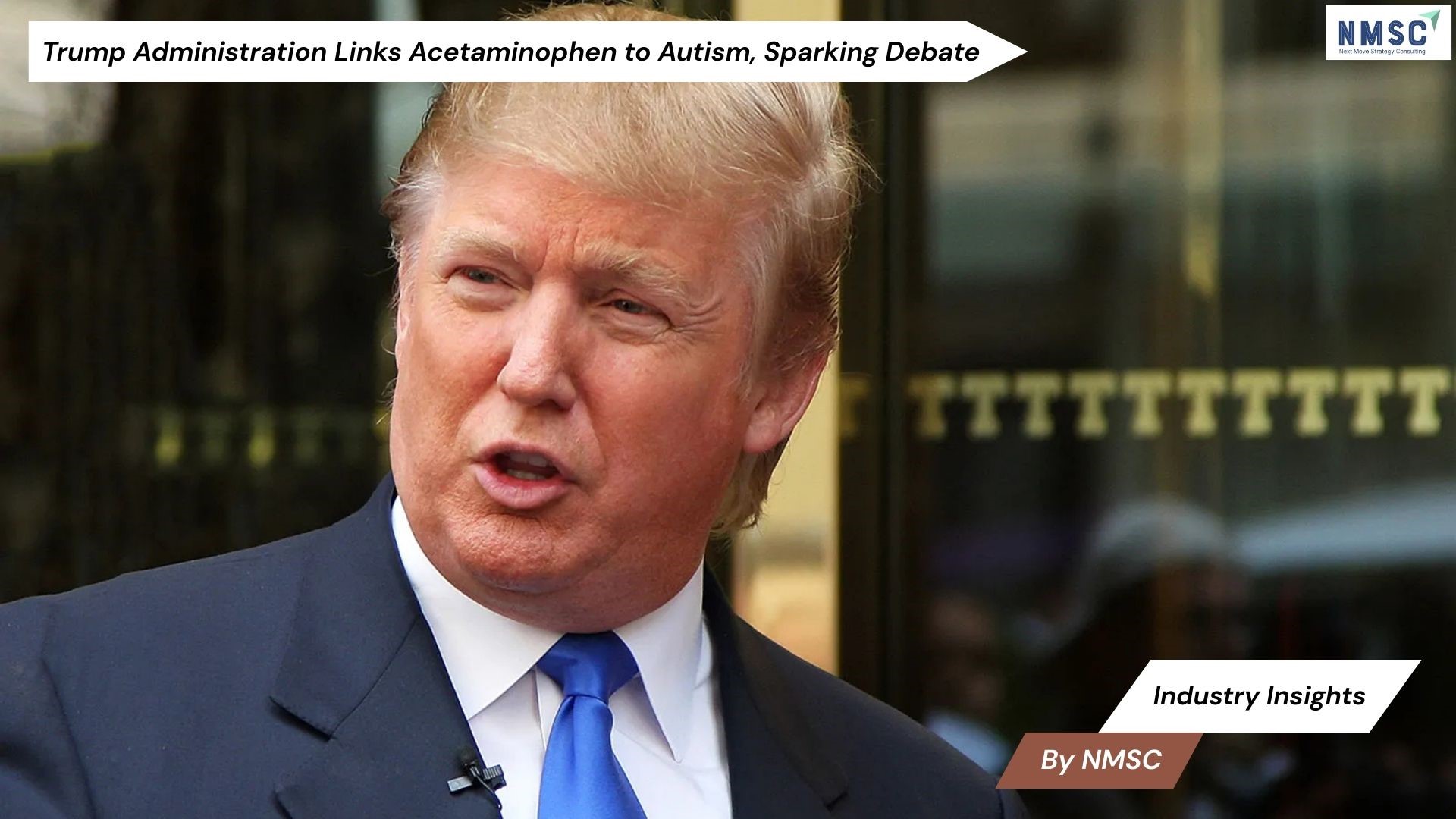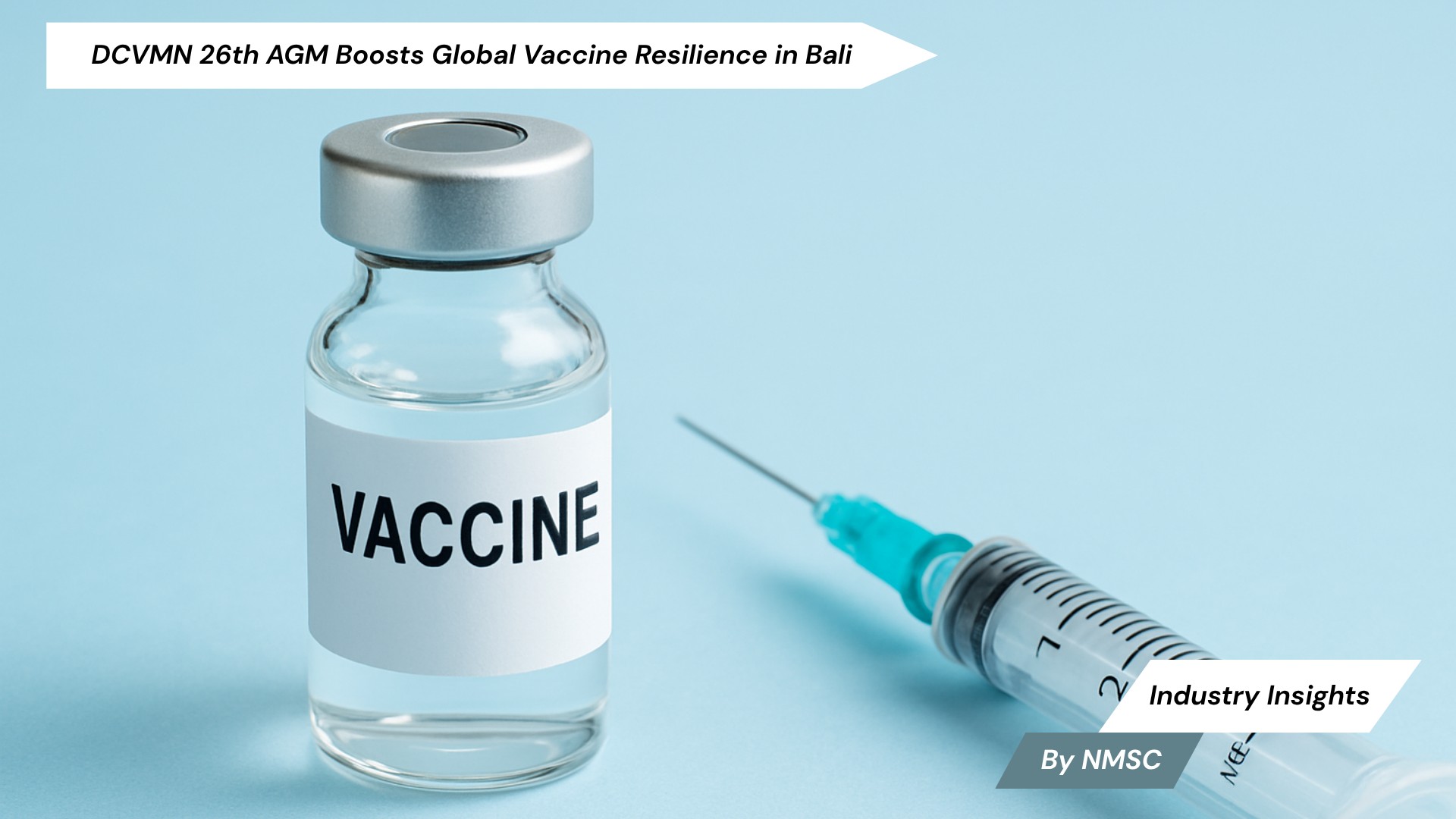Trump Administration Links Acetaminophen to Autism, Sparking Debate
Published: 2025-09-23

Industry Insights from Next Move Strategy Consulting
At a White House briefing, President Donald Trump advanced unsubstantiated claims linking acetaminophen, the active ingredient in Tylenol, to autism when used during pregnancy. The announcement, made alongside Health Secretary Robert F. Kennedy Jr. and senior health officials, marked one of Trump’s most emphatic endorsements of Kennedy’s controversial health agenda.
A Warning Against Acetaminophen Use
Trump declared that his administration will issue a warning to physicians advising against recommending acetaminophen for pregnant women, citing potential risks of autism in children. “Do not take Tylenol. Fight like hell not to take it,” he said, urging expectant mothers to avoid the drug unless facing high fever.
Kennedy confirmed that the Food and Drug Administration (FDA) will issue a formal advisory, known as a “Dear Doctor” letter, and initiate steps toward a safety label change. The move comes despite medical consensus that acetaminophen remains one of the few safe pain relief options during pregnancy.
Scientific Pushback
Researchers have long studied acetaminophen’s potential developmental impacts, with no conclusive evidence linking it to autism. Dr. Allison Bryant of Massachusetts General Hospital noted that while small associations have occasionally appeared in studies, none established causation.
A 2024 literature review cited by the administration suggested an association between prolonged acetaminophen use and autism, but scientists criticized the analysis as selective. In contrast, a large study published in the Journal of the American Medical Association involving over 2.4 million children found no consistent link once sibling comparisons were factored in, emphasizing genetics as a more significant contributor.
Brian K. Lee, professor of epidemiology at Drexel University, stressed, “The science about root causes has not changed recently.”
FDA Expands Autism Research and Treatment Measures
Alongside the acetaminophen announcement, Trump said the FDA approved label updates for leucovorin, a chemotherapy drug sometimes used off-label to address autism symptoms such as speech deficits. However, the Department of Health and Human Services clarified that leucovorin “is not a cure” and may only benefit a subset of children.
National Institutes of Health Director Jay Bhattacharya also announced a $50 million initiative funding 13 research projects to explore autism’s root causes across genetics, environmental factors, and prenatal events.
Controversial Vaccine Claims
During the same briefing, Trump echoed vaccine skepticism, questioning the childhood immunization schedule and suggesting that vaccines may contribute to autism. He endorsed delaying the hepatitis B vaccine and separating combination vaccines, positions widely rejected by medical experts.
Public health leaders underscored that autism spectrum disorder is influenced by multiple factors and warned against undermining vaccine trust.
Industry Response and Public Health Concerns
Pharmaceutical leaders and medical associations reaffirmed acetaminophen’s safety profile. A Kenvue spokesperson stated, “Independent, sound science clearly shows that taking acetaminophen does not cause autism.”
Experts warned that discouraging acetaminophen use could leave pregnant women vulnerable to untreated fevers, which themselves carry risks for both mother and fetus.
Strategic Outlook
According to Next Move Strategy Consulting, the Trump administration’s announcement is poised to reshape debates around pharmaceuticals, regulatory oversight, and maternal health practices. While the lack of new scientific evidence raises concerns among researchers, the political weight behind the warning may influence prescribing trends, litigation risks, and consumer confidence in over-the-counter medications.
Redefining the Autism Policy Landscape
The administration’s stance underscores a widening divide between political messaging and medical consensus. With heightened scrutiny on both acetaminophen and vaccine policies, healthcare providers, regulators, and families are likely to face greater uncertainty as the debate intensifies.
Source: NCB News
Prepared by: Next Move Strategy Consulting
About the Author
 Joydeep Dey is an SEO Executive, Content Writer, and AI expert with 2½ years of experience.
He specializes in SEO strategy, impactful content, and AI-driven solutions. Passionate about simplifying complex ideas, he helps boost visibility and engagement.
Joydeep Dey is an SEO Executive, Content Writer, and AI expert with 2½ years of experience.
He specializes in SEO strategy, impactful content, and AI-driven solutions. Passionate about simplifying complex ideas, he helps boost visibility and engagement.
About the Reviewer
 Sanyukta Deb is a skilled Content Writer and Digital Marketing Team Leader, specializing in online visibility strategies and data-driven campaigns. She excels at creating audience-focused content that boosts brand presence and engagement, while also pursuing creative projects and design interests.
Sanyukta Deb is a skilled Content Writer and Digital Marketing Team Leader, specializing in online visibility strategies and data-driven campaigns. She excels at creating audience-focused content that boosts brand presence and engagement, while also pursuing creative projects and design interests.
















Add Comment